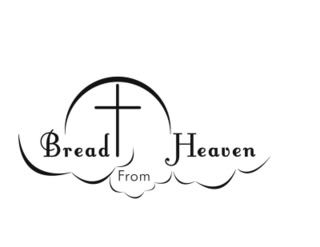A. In John 6, After demonstrating His power to feed 5,000 people with a few loaves and fishes, Jesus tells his listeners seven times that they must eat His flesh and drink His blood in order to have eternal life.Well, you finally admit it...You must eat the wafer and drink the wine to get eternal life...And Jesus says so, right???
Joh 6:33 For the bread of God is he which cometh down from heaven, and giveth life unto the world.
So no one who has ever died, or those who will die and have not eaten the wafer gets eternal life, but gets eternal damnation...
Just want to be clear here what you are teaching...
And what else did Jesus say???
Joh 6:40 And this is the will of him that sent me, that every one which seeth the Son, and believeth on him, may have everlasting life: and I will raise him up at the last day.
Joh 6:47 Verily, verily, I say unto you, He that believeth on me hath everlasting life.
5:24 Verily, verily, I say unto you, He that heareth my word, and believeth on him that sent me, hath everlasting life, and shall not come into condemnation; but is passed from death unto life.
Quite a little contrast here...In chapter 5 Jesus says nothing about eating any flesh or drinking blood...But yet people are ALREADY passed from death onto life...Without eating bread, or meat, or blood or wine...It all has to do with belief...
Joh 6:35 And Jesus said unto them, I am the bread of life: he that cometh to me shall never hunger; and he that believeth on me shall never thirst.
Now here's an odd one, if you're a Catholic...
You guys call this eating of the wafer a 'feast'...A meal...You guys even say you 'knaw' on the flesh of Jesus...
And you know what, I've never been hungry for the flesh of Jesus nor been thirsty for his blood...Just like Jesus said...
Joh 6:27 Labor not for the meat which perisheth, but for that meat which endureth unto everlasting life, which the Son of man shall give unto you: for him hath God the Father sealed.
You as a Catholic are not supposed to eat anything for an hour before you eat the wafer...Apparently this is to make sure what you have eaten has cleared at least some of your intestines...The stuff perishes after an hour...
And how long does the wafer (Jesus?) stay in your body??? Science says about 20 minutes...Then Jesus is gone, til the next time...
Mar 7:18 And he saith unto them, Are ye so without understanding also? Do ye not perceive, that whatsoever thing from without entereth into the man, it cannot defile him;
Mar 7:19 Because it entereth not into his heart, but into the belly, and goeth out into the draught, purging all meats?
There you have it...When you eat the wafer, it goes in one end and out the other...It doesn't travel thru the heart, or the soul, or the spirit...
Labor NOT for the meat that perishes, but the 'meat' that ENDURES, onto eternal life...
There is no eternal life in eating a baked wafer...Jesus isn't the literal bread...God gave the Israelites literal bread, manna...Jesus is the Spiritual bread...
Eternal life comes from believing with all your being that you need a Saviour and Jesus Christ is that Saviour...
Of course it won't hurt you to eat the wafer, but don't put your trust for eternal security into eating it...Put your trust in the Risen Lord, Jesus Christ...
